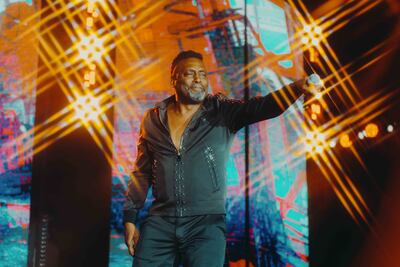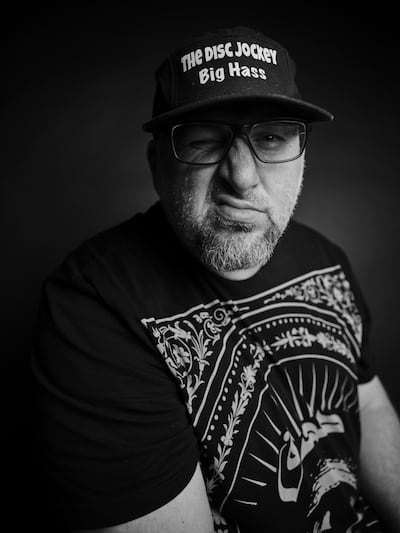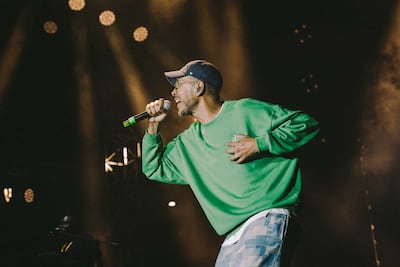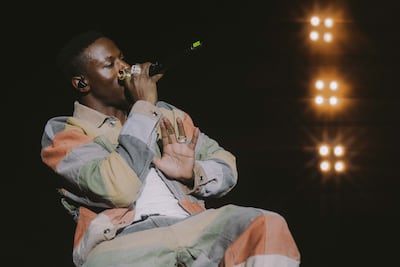Fifty years on and hip-hop is at last receiving the recognition it deserves.
Born in 1973 at a house party held in the Bronx in New York City, the genre known for its playful, potent wordplay and innovative musical accompaniments is, arguably, the most popular sound of today. Transforming the lives of generations of African-American artists born in economically disenfranchised communities, hip-hop attracted fans from the world over with anthems expressing local concerns.
This year the popular genre celebrated its jubilee with various events, from the Grammy Awards and Billboard Awards, to a giant open-air concert at New York’s Yankee Stadium featuring pioneers Run DMC, The Sugar Hill Gang, Slick Rick and Lauryn Hill.
Meanwhile, a large hip-hop museum is being built in New York. After a ground-breaking ceremony in 2021, the reported $349 million facility is scheduled to be completed in 2025 and will feature memorabilia and artists' testimonies tracking the genre's evolution.
This month, the celebration extended to Dubai as part of the Sole DXB music and culture festival.
With the latest iteration marking the milestone, The National spoke to some of hip-hop’s most influential artists and thought leaders in attendance about how hip-hop will evolve over the next 50 years.
Revered rapper Big Daddy Kane

Big Daddy Kane, viewed as one of hip-hop's first stars, is regarded as "the rapper's rapper" and released the seminal tracks Smooth Operator and Ain’t No Half Steppin'.
The latter 1988 song is one of the most influential rap songs to date.
The complex rhyme scheme, peppered with clever metaphors and stylish narrative influenced generations of artists such as Jay-Z and Nas.
While pleased with hip-hop’s stature as a cultural force, Kane says the genre can maintain that status only if new generations of artists focus more on the quality of their work.
“While in hip-hop today being a lyrical MC is no longer a necessity, I would like to see more well-rounded artists,” he says.
“By that I mean an artist who knows how to make hit records, one that’s focused on what they are saying on the record as opposed to the hook.
“And one that has the kind of look where his fan base wants to dress like them. These abilities will give an artist the longevity to stay in the game.”
Author Vikki Tobak

For more than two decades Vikki Tobak had a front-row seat watching hip-hop's growth, having started her career working for a music label before serving as superstar Jay-Z’s first publicist and then moving into journalism and writing hip-hop history books.
Her latest title, The Streets Win: 50 Years of Hip-Hop Greatness, a collaboration with rapper LL Cool J and author Alec Banks, features first-person career recollection and rare images from genre giants such as DJ Kool Herc, Eminem and Beastie Boys.
Other works include 2018’s Contact High: A Visual History of Hip-Hop, featuring rare outtakes from more than 100 era-defining photoshoots, alongside interviews and essays from industry legends.
Where those books focused on hip-hop’s journey from its origins in New York to Los Angeles, Tobak says the genre has become so international that future discussions regarding its place in US pop-culture will become redundant.
“What hip-hop did was allow people the freedom to be themselves unapologetically and this defining idea is bigger than all of us or any location. This is why you see it being embraced internationally and particularly now in Africa, in places like Nigeria and Ghana, where their unique scenes are informed by hip-hop,” she says.
“Hip-hop is always tied to youth culture so if you ask me where the next capital of hip-hop will be, my answer will be it is wherever young people are creating something new.”
Radio host Big Hass

The Arab world is well placed to be one of hip-hop's global citadels, says Big Hass, providing there is a better understanding of its history.
As the host of pioneering Saudi radio programme Laish Hip-Hop, which celebrated its 12th anniversary this year, Hass – full name Hassan Dennaoui – says the Arabic hip-hop scene is yet to embrace other fundamental facets of the genre.
"One of the biggest things we have to understand is that hip-hop is not only rap – it's a wider culture that also incorporates break dancing and DJing," he says.
"These elements are missing here and we need to do a better job to let people know that there is more to the culture than that."
That said, Arabic hip-hop is fast becoming the most popular form of popular music with artists such as Egypt's Marwan Pablo and Wegz routinely topping regional streaming charts with new releases.
While pleased at the growing recognition, Hass hopes that increasing commercialisation doesn't come at the expense of the fire and passion that made Arabic hip-hop initially so refreshing when it emerged two decades ago.
"At the beginning Arabic hip-hop sounded mostly angry because it dealt mostly with the social issues of the time and now it's moved on to sound more light and fun” he says.
“While I understand that things have to evolve, my personal hope for the future is that Arabic hip-hop doesn’t totally lose that fiery passion that inspired so many of us in the first place.”
Rapper Oddisee

As someone who fluidly melds hip-hop with elements of jazz, funk and even some go-go, American Sudanese rapper Oddisee is predicting the music’s future will sound more eclectic.
“The biggest testament to hip-hop's popularity is that it no longer sounds specifically American,” he says.
“What I have seen is the music evolve from this niche New York sound to becoming international.
“With the invention of subgenres like trap, drill and crunk music, for example, you are seeing more people adding their own cultures to the mix.
“That's why now we are seeing all these new genres coming that are influenced by hip-hop, like Afrobeats and Amapiano from Africa. It’s all going to sound even more globalised in the future.”
Looking forward with hip-hop's subcultures

For all the talk of hip-hop’s future, the New York artist Joey Bada$$ hopes the genre’s stars don’t have to wait another 50 years to receive their acclaim.
"Hip-hop is in an incredible place and, like rock'n'roll, it has created a lot of subgenres – it's so inherently innovative that it will continue on that trajectory," he says.
"But unlike rock'n'roll, hip-hop artists are not honoured in the same way in award shows. Different rock'n'roll genres and different subgenres are awarded, while hip-hop is still limited to one or two very specific awards.
“I would love to see the different branches of this music get the same recognition in the future.”


